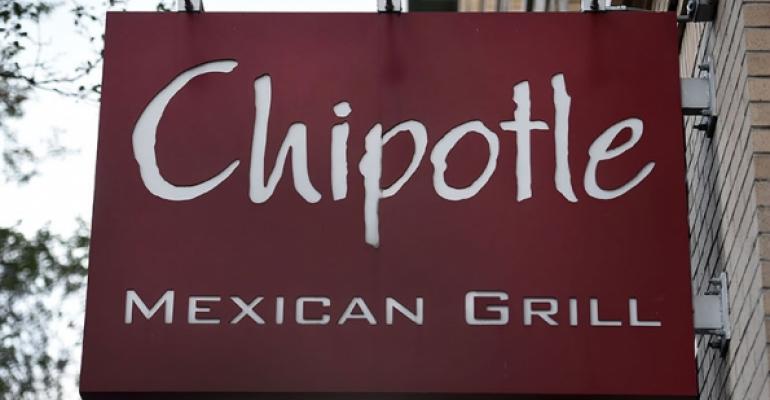The Centers for Disease Control and Prevention on Monday said Chipotle Mexican Grill Inc.’s ongoing E. coli outbreaks appear to be over.
The announcement brings an end to the investigation of two outbreaks that together have sickened 60 people in 14 states.
The initial outbreak, which began in the Pacific Northwest, involved a strain of Shiga toxin-producing Escherichia coli 026, or STEC026, and 55 people were reported ill in 11 states between Oct. 19 and Dec. 1, 2015. Twenty-one people were hospitalized, but no deaths were reported, the CDC said.
In the second, smaller outbreak, five people were infected with a different strain of STEC026 in three states. One person was hospitalized, but no reports of death. Illnesses were reported between Nov. 18 to Nov. 26, 2015.
The two outbreaks were not believed to be related, and the CDC said no specific food has been identified as the cause, though a common meal or ingredient at Chipotle is likely the source.
Tests of multiple food items collected from Chipotle restaurants did not identify STEC 026, the CDC said, and reviews of the chain’s distribution records also was unable to pinpoint any single food item that could explain either outbreak.
In a statement, Chris Arnold, Chipotle’s communications director, said, “We are pleased that the CDC has concluded its investigation, and we have offered our full cooperation throughout. Over the past few months, we have taken significant steps to improve the safety of all of the food we serve, and we are confident that the changes we have made mean that every item on our menu is delicious and safe.”
Getting the all clear from the CDC is expected to be key in Chipotle’s marketing push to invite customers back.
Last month, Chipotle’s founder, chair and co-CEO Steve Ells said a marketing campaign was scheduled to launch in mid-February and will focus on measures the chain has implemented that will bring the risk of another foodborne illness outbreak to “near zero.”
The chain is scheduled to report fourth quarter and full year results on Tuesday. Last month, the chain said same-store sales declined 14.6 percent during the quarter, including a 30-percent plunge during the month of December, when news hit of the E. coli outbreak spreading and an unrelated norovirus outbreak in the Boston area sickened more than 140 people.
Chipotle is also the target of a federal investigation related to a norovirus outbreak at a restaurant in Simi Valley, Calif. earlier in 2015.
Meanwhile, market research firm NPD Group said Monday that young adults have not abandoned Chipotle, despite the chain’s sharp declines in traffic.
For the chain’s December-ended fourth quarter, total visits to Chipotle were down 5 percent, compared to a 19-percent increase in traffic during the same quarter a year ago, NPD said.
Teens and young adults, however, who represent about 35 percent of total Chipotle traffic volume, increased their visits during the October through December period by more than 10 percent. For the year in 2015, teens and young adults aged 13 to 24 increased visits by 11 percent compared with the prior year, according to NPD’s research.
“Young adults represent the largest share of Chipotle’s overall traffic,” said Bonnie Riggs, NPD Group’s restaurant industry analyst, in a statement. “Their willingness to overlook any food safety concerns to eat at Chipotle could be a result of unabashed loyalty or lack of awareness.”
NPD tracks consumer awareness and concern about food safety, and typically sees heightened concern when foodborne illness outbreaks are in the news, the firm said. But when the news cycle quiets down, so does concern about food safety.
Research, however, indicates that Chipotle’s not-so-loyal and former customers appear to have scattered to other quick-service or fast-casual brands, though no particular outlet or chain is the clear winner, NPD said.
Chains with the most units, like Burger King and McDonald’s, are likely beneficiaries, but Chick-fil-A and Wendy’s also probably won some former Chipotle customers, the firm said.
“What our research tells us is that Chipotle has a strong loyal base from which to build its business back up relatively quickly,” said Riggs. “To win back the trust of their former customers, Chipotle will need to continually communicate all of the ways in which they are preventing any future outbreaks and prove to them that they are able to deliver on their ‘food with integrity’ promise.”
Update: Feb. 1, 2016 This story has been updated with more consumer volume data from the NPD Group. It also was updated to include a statement from Chipotle.
Contact Lisa Jennings at [email protected].
Follow her on Twitter: @livetodineout





